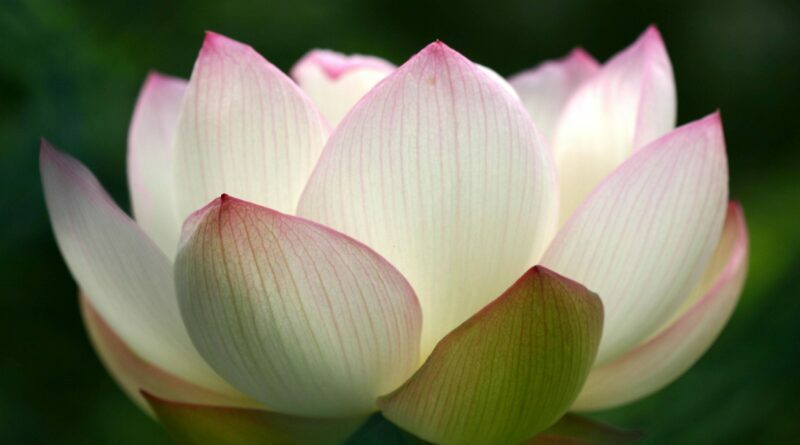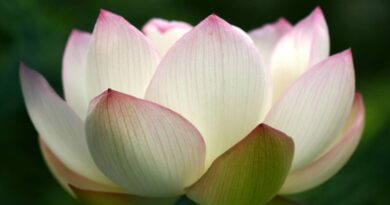THE END OF THE WORLD
The End of the World
As Ratthapala said in his Dhamma summaries, “The world is swept away.” We have to make sure that we don’t get swept away with it.
The problem, of course, is in that last of the Dhamma summaries: “The world is a slave to craving.” In other words, we’re slaves to craving, which is why we keep going back for these things that get swept, swept, swept away.
Now, the fortunate thing is that we’re not trapped here. We don’t have to stay here. In fact, the whole purpose of the teaching is to get out.
The idea that Buddhism is here to create a perfect world where everybody is kind and generous, has nothing to do with what the Buddha actually taught. The whole idea of a secular Buddhism, where the emphasis is on our living the good life here in this world, is an oxymoron. The Buddha was aiming at something above the world. Lokuttara, the word we translate as “transcendent,” actually means, “above the world.” You’ve got to make your mind above the world.
Otherwise, you get crushed—think of all those mountains moving in, in the simile the Buddha taught to King Pasenadi. If we were just physical bodies, with the mind just an epiphenomenon of physical processes, it’d be pretty miserable. The mountains would come in, they’d crush us, and that’d be the end.
But remember King Pasenadi’s reaction to the Buddha’s image. As the Buddha asked him, “If someone were to tell you that mountains were moving in from four directions, crushing everything in their path, then—reflecting on how hard it is to gain a human rebirth—what would you do?” And the king said, “Well, what else could I do but calm my mind and practice the Dhamma?”
In other words, you don’t let your goodness die.
Remember the Buddha’s analysis of what a world is: your six senses. And remember that samsara is not a place. It’s an activity. It’s made out of your actions. That’s where the danger lies—in your actions—but it’s also where the promise lies.
If we were just physical things defined by the world, there’d be no way we could use the processes of the physical world to get out of the physical world. But because the world is made of our actions, we can use the processes of actions to get out of this web of actions that we’ve woven for ourselves.
This is where the fact of the complexity of kamma actually works to our advantage. It does have a disadvantage in that often we’re very confused as to what’s going to be helpful. Something looks good and looks okay and we do it and then we find out quite a while later that it wasn’t good at all in the long term. But the complexity of kamma also gives us freedom of choice. And we have the Buddha and we have the Dhamma to give us some basic instructions as to what’s skillful and what’s not, at the same time teaching us how to develop the qualities of mind where we can start to see these things for ourselves.
That’s when you begin to realize that you can use your actions to take apart this web of actions. As the Buddha said, the noble eightfold path is the path of actions to the end of action. It’s the fabricated path to the unfabricated. The complexity of kamma makes that possible.
And so, like King Pasenadi, you focus in on your actions right now. As things get swept away in the world, you want to make sure that you focus on what’s really important, what you really are responsible for, which is what you’re doing right now, what you’re saying, what you’re thinking right now. You also focus on the skills you can develop while doing this, because those skills will hold you in good stead. In some cases, they’ll actually make all the difference here in this present world.
Think of the case of the Shackleton expedition to the Antarctic. Their ship had been crushed by the ice. There was nobody there to help them. It was just them in the vast, empty, frozen wilderness. They had to haul their small boats across the ice, and then the ice got slushy and difficult. But they kept at it. Everyone in the team knew what he had to do and he just did it. They didn’t think about whether they would come out or not: In fact, most of them thought they were not going to survive. But they knew that at the very least what they would do in the present moment could make a difference, would have the possibility of making a difference, so they stuck with that.
They kept doing what they had to do, had to do, had to do, what they’d been trained and disciplined in doing, and that did make all the difference. They actually were able to get out, and nobody died.
So that’s one point: The goodness you do can make all the difference right here and right now as to what kind of world you’re living in.
The Thais have a very strong belief, and I think it’s right, that one of the reasons they were able to escape a lot of the horrors of the twentieth century was because they harbored good monks, good people practicing the Dhamma. That protected them from all kinds of things.
Now, in case your past kamma is not good, things get really bad, and you die: Remember that you’re developing skills right now that’ll hold you in good stead even after death. All the qualities of the seven treasures are qualities you can develop and take with you.
There’s another story about people being swept away. There was a group of Inuit that Barry Lopez talks about in Arctic Dreams. An Inuit family was on an ice floe, part of the ice shelf, and all of a sudden the floe got separated from the ice shelf and was swept away by the currents in a big storm. They didn’t come back, and didn’t come back, and everybody else in the Inuit village assumed that they had all died.
Then a year or so later, they showed up, paddling back in their kayaks. What had happened was that their original kayaks and all their other belongings had been destroyed. They found themselves washed ashore in a place where they didn’t have the usual trees or skins that they could use to make good clothing and kayaks. But they found other trees, other skins, and so they used the skills that they had developed to make everything they needed out of makeshift materials.
As they paddled back into the village, they were all laughing about what sorry-looking kayaks they had and what sorry-looking clothing they were wearing, but they had survived on the strength of their skills.
So think of this as you practice the Dhamma: You’re developing the skills that will hold you in good stead wherever the currents of kamma may wash you up. That’s an image from Ajaan Lee: In Thai he says, kam sat pai, which means that your kamma can throw you up on a beach someplace like a rogue wave. But as he said, if you have discernment, then even if the only other thing you have is a machete, then you can set yourself up in life. In other words, you’ve got the skills, you’ve got the knowledge, the inquisitiveness, a sense of generosity, all these other treasures that you’ve developed: Those will see you through.
Look at the forest ajaans themselves. They were born into very poor circumstances. Despite all the good they’d done in the past, they still had some bad kamma. They were born at the bottom of the totem pole in Thai society: peasants up in the northeast. Yet they had a past current that was also good, that helped them to be straightforward, honest, and wise in seeing what was really worthwhile and what was not. When they learned the Dhamma—when Ajaan Mun found the Dhamma and then brought it to teach them—they recognized it as the genuine thing. And it inspired them. They were able to become the great ajaans we bow down to today.
So have faith in what you’re doing and in the skills you’re developing here, because they can see you through, even when everything else starts collapsing and the mountains come moving in. And remember: The mind is not crushed by mountains. Your goodness is crushed only by your own discouragement, by your own lack of faith, your lack of conviction, lack of persistence. Those are the things that crush you, and yet those are also things you can do something about.
The mountains keep moving in, moving in. The world is swept away. It’s the nature of the world. If the north mountain doesn’t get you, the south mountain will. But they get just your body. So focus on your mind: That’s your important refuge. All the skills you develop as you practice: Those are your refuge. Those don’t get swept away.
Remember where the escape is. The escape is inside. You can’t escape the world, as the Buddha said, by going to the edge of the cosmos. He had that image of the skywalker—an interesting term that got picked up later by some moviemakers here—someone whose every stride could be measured in miles, and who could stride, stride, stride across the universe. And as he said, even if you were a skywalker and had a hundred-year lifespan, you wouldn’t come to the end of the universe.
But he also said that you can come to the end of the world inside. There’s a spot in the mind, there’s a dimension, as he calls it, where the world has no footing. That’s the end of the world. That’s here inside you.
Some people say that your quest for finding that end of the world is selfish, and that you should be out there trying to keep the mountains away for a little bit longer. But you have to remember that to find that spot inside, generosity is one of the prerequisites, one of your inner treasures. We don’t leave the world by trashing it. We develop generosity, we develop virtue, all the things that make human life good. But we do it in such a way that gets us out, because outside the world is a lot better than in.



